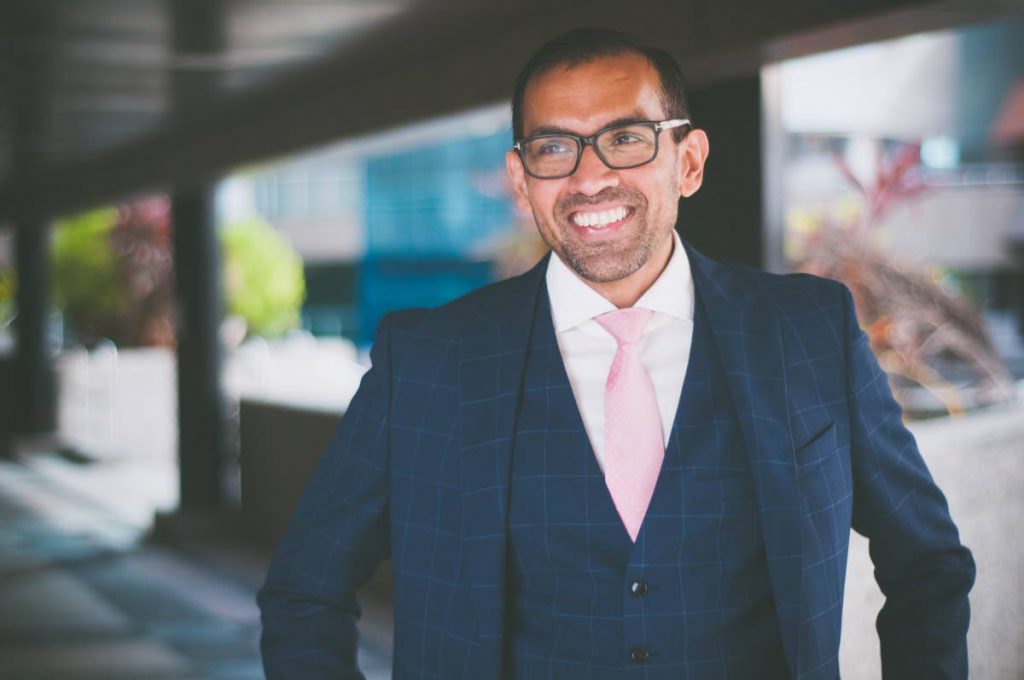Former chief magistrate’s cases must start over

Dr Emir Crowne
The 53 partially completed cases of former chief magistrate, Marcia Ayers-Caesar, must start over. This was the opinion of High Court Justice Carol Gobin in her January 4 decision (CV2017-3190). In that decision, the Attorney General had sought an interpretation from the court as to the proper handling of the 53 matters that the former chief magistrate had partially heard, and left unresolved, before her appointment to the High Court. Could those matters be assigned to another magistrate for completion? Or did they need to be started afresh (“de novo”)?
The court held that although the relevant pieces of legislation neither allowed nor disallowed the continuation of partly heard matters before a different magistrate, the constitutional right to a fair hearing required that the matters be re-started. It was fundamental to a fair hearing that the magistrate in question hear the totality of the evidence in arriving at their decision. A substitute magistrate relying on the former chief magistrate’s notes could never meaningfully assess the credibility of earlier witnesses.
Justice Gobin felt bound by the Privy Council decision in Wong and Man v The Queen (Mauritius) [1987] UKPC 23, where Lord Griffiths rightly observed that:
“In a criminal trial, whether before a jury or before magistrates, it is a fundamental requirement of justice that those called upon to deliver the verdict must have heard all the evidence.
"The evaluation of oral evidence depends not only upon what is said but how it is said. Evidence that may ultimately read well in a transcript may have carried no conviction at all when it was being given.
"Those charged with returning a verdict in a criminal case have the duty cast upon them to assess and determine the reliability and voracity of the witnesses will give oral evidence, and it is upon this assessment that their verdict will ultimately depend.
"If they have not had the opportunity to carry out this vital part of their function as judges of the facts, they are disqualified from returning a verdict, and any verdict they purport to return must be quashed.”
During the course of the proceedings, the court also issued a declaration on June 26, 2018 that the former chief magistrate was deemed to have resigned from her position as a magistrate once appointed to the High Court. As that declaration was not appealed, the option to have the cases in question completed by Ayers-Caesar herself was no longer available.
In her concluding reasons, Justice Gobin expressed concern about the entire state of affairs, not only for the accused, but the administration of justice as a whole. She also suggested that the Judicial and Legal Services Commission (JLSC) might consider asking future magistrates if they have any part-heard matters left on their docket as to avoid future debacles. But in the end “the ill effect on public confidence in the administration of justice and the institutions which allowed this to happen whether through lack of due diligence… or recklessness will persist”, according to Justice Gobin.
The idea that several dozen cases must be restarted due to a clear omission by the former chief magistrate burdens both the accused (financially and in terms of their liberty interests) and the taxpayer (who indirectly funds the re-prosecution of these matters). In the end, however, Justice Gobin did her best in an unenviable situation. A situation that has irreparably harmed the public’s perception of the administration of justice.
It also seems clear that once those matters are indeed re-started, they will all be subject to constitutional challenge. The clearest constitutional breach appears to be the “right to be brought promptly before an appropriate judicial authority”. Re-starting 53 matters can hardly be said to be prompt. Furthermore, the Constitution guarantees that any deprivation of liberty be consistent with the due process of law. It is arguable that this unusual state of affairs is entirely inconsistent with the due process of law. Lastly, the further delay caused by re-starting 53 matters invariably infringes upon the constitutional protected right to a fair hearing. Individually, or taken together, the constitutional infringements are simply insurmountable in my view.
In a society where the other organs of the State seem to be failing, stalled or saddled with indirect motives, the integrity of the Judiciary must be zealously protected. Justice Gobin was right to counsel the JLSC to directly ask future magistrates if they had any part-heard matters, as to avoid this utter debacle in the future.

Comments
"Former chief magistrate’s cases must start over"